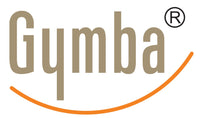Gymba's Blog

The modern workplace has transformed dramatically over recent decades, but one element remains consistent: many of us spend most of our working hours sitting down. As our understanding of human physiology advances, we're discovering that this sedentary approach to work doesn't align with how our bodies are designed to function. Active workspaces, which encourage natural movement throughout the workday, aren't just a wellness trend; they're backed by substantial scientific evidence. This article explores the fascinating science behind active workspaces and how incorporating movement into your workday can improve your health, wellbeing, and productivity.

Schools can implement better ergonomics by redesigning classroom layouts, investing in adjustable furniture, providing ergonomic tools, and establishing movement-friendly practices. Effective implementation requires assessing current setups, educating staff and students about proper posture, and creating environments that accommodate natural movement. Prioritizing ergonomics in educational settings supports student focus and physical development while reducing discomfort and potential long-term health issues. Successful ergonomic improvements typically combine physical workspace adjustments with awareness programs that encourage regular movement and proper body positioning.

Balance is essential for everyday movement. It’s not just for athletes or older adults — good balance affects everyone’s ability to move safely, confidently and efficiently.
The Gymba® Balance Board MINI is a patented (pat. pend.) innovation designed to support balance, strength and mobility in a compact format. Whether you're a beginner or a professional athlete, this versatile tool helps you improve physical control and movement quality — at home, in the gym or during rehabilitation.

Many of us spend the majority of our days sitting—at work, in the car, and even during leisure time. While the risks of prolonged sitting to heart health and metabolism are well-known, its effects on our feet are often overlooked. However, our feet, which are designed to bear our weight and keep us moving, suffer significantly from too much sitting. The good news? Making simple changes to reduce sitting time can have powerful benefits for foot health and overall well-being.

Spending hours at your desk can take a toll on your body. Many office workers experience stiffness and pain, and even long-term health risks due to prolonged sitting.
By making small adjustments to your daily routine, you can combat these risks and improve your overall well-being.
Staying active at your workstation doesn’t have to be complicated. With a few simple movements and habits, you can keep your body engaged, improve circulation, and reduce discomfort.

